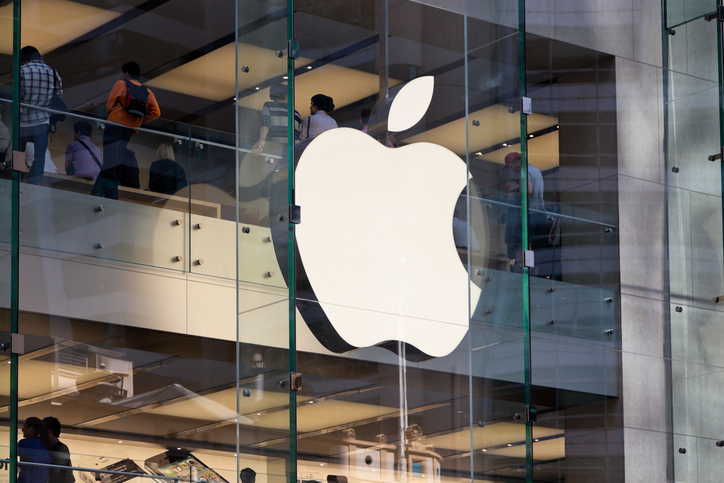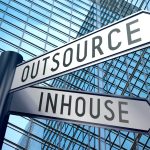Apple’s Ongoing Struggles with European Regulations: Fines, Legal Battles, and Leadership Conversations
In 2023, Apple faced continued scrutiny from European regulators, resulting in significant financial penalties and raising concerns over its influence in the technology sector. These regulatory challenges have placed Apple at the center of legal and political debates, particularly around the European Union's efforts to hold big tech accountable for practices deemed anti-competitive. A striking example came when Apple was hit with two massive fines—€13 billion ($14.08 billion) in back taxes to Ireland and a separate $2 billion antitrust penalty related to its App Store practices.
Apple's Legal battles
Apple's legal battles with the European Union (EU) are part of a broader global push to limit the overwhelming power of major technology companies like Apple, Amazon, and Google. European regulators have been at the forefront of these efforts, imposing stricter rules around antitrust, privacy, and tax avoidance. Apple has found itself repeatedly in the crosshairs of EU regulators, who accuse the tech giant of engaging in monopolistic practices, particularly in its App Store, which allegedly stifles competition, most notably from music streaming services like Spotify.
In a legal defeat last month, Apple was ordered by the EU to pay billions in back taxes to Ireland, a ruling that the company has vowed to fight. This case centers on the accusation that Apple benefited from unfair tax advantages in Ireland, prompting the EU to push for repayment. Apple's business model in Europe has come under intense scrutiny, and these penalties reflect the growing frustration among regulators with the way multinational tech firms operate in various tax-friendly countries.
Tim Cook's call to Donald Trump
Apple CEO Tim Cook’s leadership has been critical in steering the company through these turbulent times. While Cook has maintained a diplomatic stance with European regulators, reports have emerged that he sought assistance from former U.S. President Donald Trump during a recent legal blow from the EU. In an interview with podcast host Patrick Bet-David, Trump revealed that Cook had reached out to him directly to express concerns about the massive fines being levied on Apple by European authorities.
"He (Cook) called me two hours ago, three hours ago," Trump said during the interview. "He mentioned that the European Union has fined us $15 billion...and another $2 billion," referencing Apple's financial hits. According to Trump, Cook was looking for support in pushing back against what he saw as unfair financial penalties from European regulators. However, Apple has yet to confirm or deny the specifics of the phone call.
Cook’s concerns come at a critical juncture for Apple, which not only faces challenges in Europe but also in other parts of the world. Regulatory scrutiny over Apple’s dominance in key areas such as the App Store, iPhone sales, and its growing services business has only intensified. The European Union has been particularly aggressive in enforcing its competition laws, which aim to create a level playing field for smaller competitors.
The hefty fines are part of a broader movement within Europe to crack down on big tech. In particular, the EU’s Digital Markets Act (DMA), which came into effect in 2023, seeks to impose stricter regulations on gatekeeper platforms like Apple's App Store. The DMA is designed to prevent tech giants from using their dominant positions to unfairly favor their own services or hinder rivals.
Apple’s App Store practices have been a major point of contention, especially regarding how the company charges app developers a commission on all in-app purchases. Competitors like Spotify have long complained about this "Apple tax," arguing that it places them at a disadvantage. The EU's €2 billion fine earlier this year was largely related to these practices, adding to Apple's legal troubles in the region.
Amid all these issues, Apple's stock has seen some volatility, with shares dropping over 25% this year alone. This decline is partially due to the heavy financial burden of legal battles and fines, coupled with ongoing economic uncertainty. Despite this, Apple remains one of the world’s most valuable companies, driven by its loyal customer base and innovative product line, including the iPhone and a growing services segment that includes Apple TV+ and Apple Music.
With Tim Cook at the helm, Apple is navigating these challenges cautiously but confidently. Under his leadership, the company has weathered numerous storms, from supply chain disruptions to geopolitical tensions. However, the pressure from Europe is perhaps one of the most significant challenges Cook has faced in his tenure. European regulators are relentless in their pursuit of enforcing competition laws, and Apple’s business model continues to be a target.
The future of Apple
Looking ahead, Apple is likely to continue fighting these legal battles, not only in Europe but potentially in other jurisdictions as well. The company is appealing several rulings, including the massive tax penalty in Ireland, arguing that its tax arrangements were lawful under Irish and European Union law. Yet, as the EU pushes forward with its regulatory agenda, the spotlight on Apple—and other tech giants—is unlikely to fade any time soon.
Apple’s global influence is undeniable, but these regulatory hurdles in Europe signal a new era where tech companies must operate under stricter rules. Tim Cook’s leadership will be key in determining how Apple adapts to these changes while continuing to innovate in a highly competitive market. As for the political landscape, it remains to be seen whether there will be any intervention from international governments, such as the U.S., to ease the regulatory pressures on companies like Apple.
For now, Apple's legal battles in Europe serve as a reminder that even the biggest corporations can face significant pushback when their business practices are seen as overreaching. With more regulations on the horizon, Apple will need to rethink its strategies to comply with these new laws, or it could face even larger fines and more restrictions on its operations.











